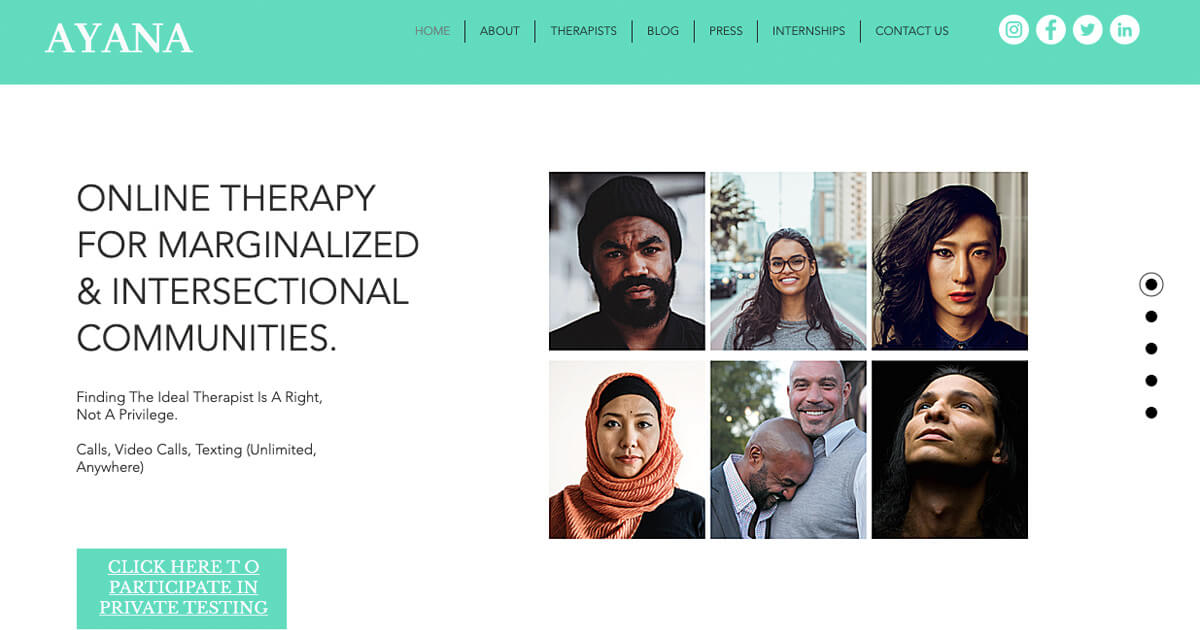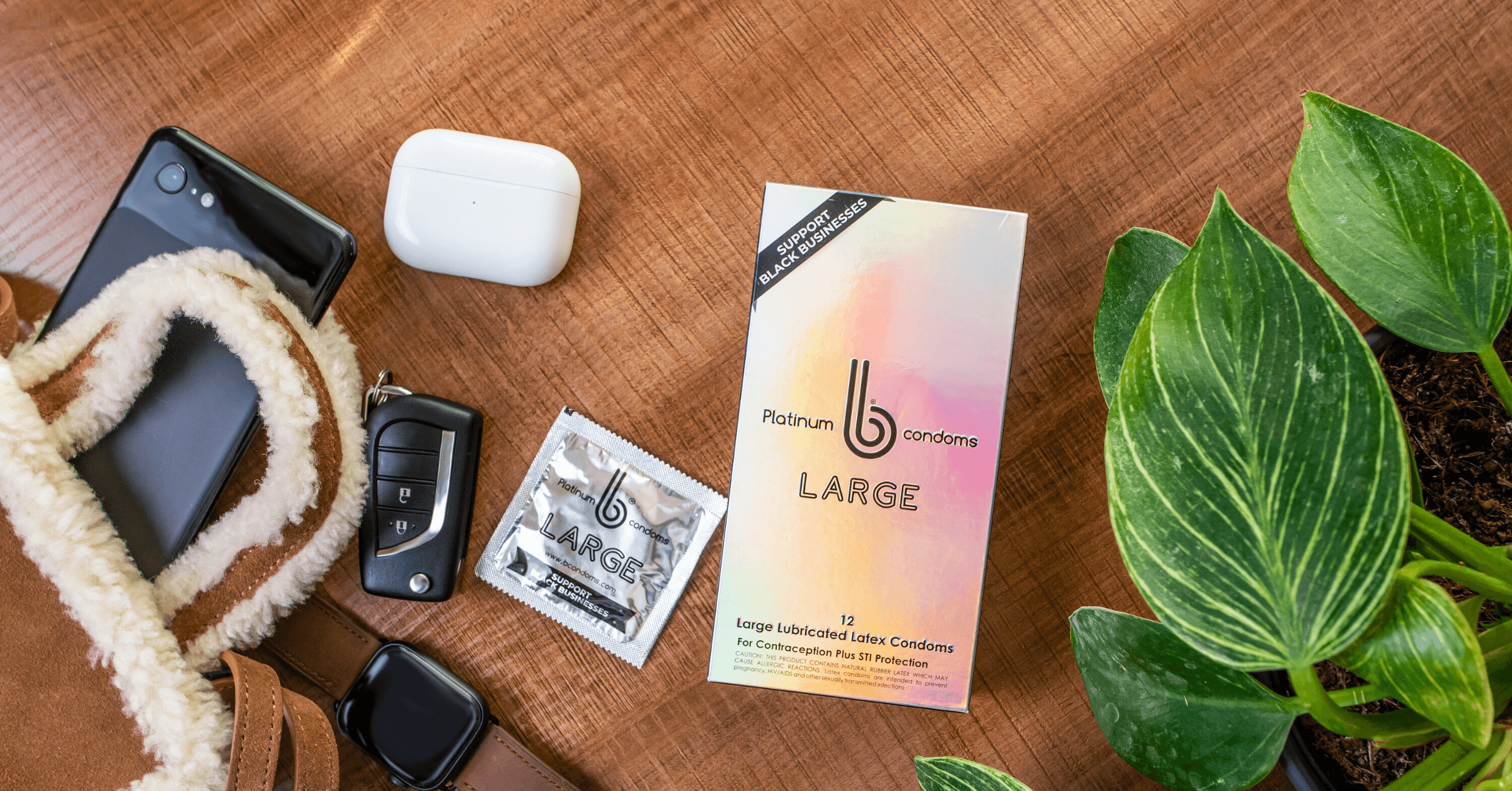In a striking amount of time, COVID-19 has reduced New York City from the city that never sleeps to “the epicenter” of the coronavirus outbreak in America. When New York Governor Andrew Cuomo requested emergency aid, he didn’t just ask for funding and supplies — he also enlisted help from the mental health community. The announcement this week that more than 6,000 mental health professionals volunteered to provide free services underscores that in these times, our mental health is as much a concern as our physical.
KEY TAKEAWAYS
- Mental health app companies like Ayana, Shine, and Henry Health center needs around vulnerable and marginalized populations’ access to mental health and wellness support.
- 86% of the 100,000+ therapists in the U.S. are white.
- Founders grow companies as the need for mental health care during social isolation increases.
Even before the pandemic renewed awareness for self-care, a number of Black founders were working on apps to provide wellness support for marginalized communities. Shine, Liberate, The Safe Place, Henry Health, and AYANA Therapy are all companies that have launched or are close to rolling out apps that cater to our needs.
Only 1 in 3 African-Americans who need mental health care actually receives it, reports the American Psychiatric Association. Combine the mental health care gap with high rates of mental illness misdiagnosis and a lack of representation in the behavioral health services workforce, and you can see the need for targeted support solutions.
“So much of what we understand about mental health and human behavior is based on white people. Period,” said Dr. Courtney D. Cogburn, associate professor at the Columbia University School of Social Work. “Most of psychology, for instance, is based on white male college students, and that’s not an exaggeration. If that is the case, maybe some of that is just human, but there’s probably a considerable portion that we don’t know or understand at all because we haven’t studied anybody other than white people.”
Dr. Cogburn leads a division dedicated to researching the ways we characterize and measure racism and its effects on racial inequalities in health. What she’s learned is that racial trauma and experiences of racial discrimination are very significant hits on our physical and mental health, but “most clinical professionals are not trained to examine the effects of that in any meaningful way.”
For apps that fill the niche, there is a great opportunity to “do well by doing good. The global health and wellness industry is worth $4.2 trillion and growing. Mental wellness/mindfulness apps were the No. 1 trend of the year in the App Store in 2018, and the most popular app, Calm, earned about $8 million in the U.S. and $13.5 million worldwide.
SHINE LEADS THE PACK
Of the mental and emotional support apps on the market founded by people of color, perhaps Shine is the biggest success story. Founded in 2016 as a daily motivational text messaging service, it transitioned to an iOS and Android app that provides an audio library of over 500 guided meditations, bedtime stories, and ambient music to help users navigate stress and anxiety. It also offers wellness content specific to people of color, on topics such as representation burnout. In a little over three years, the Shine app amassed 4 million users across 189 countries and bills itself as the largest and most diverse group of people practicing daily self-care together.
“In a world where 1 in 4 people will be affected by a mental health disorder, with women at greater risk and people of color disproportionately affected, we thought it was pretty important to see those same people represented in the conversation around mental health,” said co-founder Marah Lidey, who is based in New York along with a staff of 14 employees.
Lidey and co-CEO Naomi Hirabayashi, who is Japanese-American, raised their first round of funding from people of color at venture capital firms including Comcast Ventures, Flybridge, and BBG Ventures. They’ve now raised about $10 million in VC funding, and Lidey was featured in a 2018 Vanity Fair spread of the just 26 Black women who had secured $1 million in venture capital funding at that point.
But for every Shine, there are a number of newer apps trying to break into the market and having to answer the same myopic questions posed by hesitant investors: Why an app just for Black people?
WHY BLACK MENTAL HEALTH MATTERS
Henry Health is a digital wellness community founded by Kevin Dedner and Oliver Sims that provides self-care support and culturally sensitive teletherapy for Black men. The organization takes its name from the concept of John Henryism, based on the folkloric character whose hardworkingness was his claim to fame—and the cause of his death.
“In investor conversations, Kevin heard a lot of people saying, ‘Why are you focused on Black men?’” said Chief Strategy Officer, Laura Stokes.
The fact is Black men have the lowest health expectancy of any population in the U.S. Instead of trying to sway those who don’t understand the gravity, Henry Health chose to press forward in an enterprising way by putting out a call for partners who align with their vision, which Stokes leads.
“When we think about launching the app we’re always going to make it available to individuals who want to download it and pay for services out of their pocket,” she said, “but primarily we want to be thinking about how we can build partnerships who are aligned with our mission to ensure that Black men can show up whole and operate with joy and live with power.”
While Stokes could not specify the partners yet, they will be beta testers of the iOS app and include large health systems, insurance companies, national nonprofits, and HBCUs in the DMV region, where Henry Health currently has jurisdiction to offer teletherapy services. The company is also a part of the StartUp Health Accelerator and is currently raising its first round of institutional funding right now.
BLACK PEOPLE DESERVE TO BE SEEN
Of the 100,000-plus therapists in the U.S., 86% are white. AYANA Therapy founder Eric Coly says the mission of his app is to find the mental health care providers who reflect our values and make them available — hence the title Ayana, which means “mirror” in Bengali.
The app will be a culturally specific matchmaking service, if you will, based on a questionnaire that delves into the four major traits of identity: ethnicity, orientation, gender, and religion. Coly knows how important this nuance can be. He has survived bouts of depression and anxiety and explains that the typical questionnaires used to match potential clients and therapists tend to be so Western-centric they often lead to a mismatch, which can result in misdiagnosis.
“You could tell me I’m not just Black, I’m Black and Ethiopian, or I’m Black, Ethiopian, queer, and Muslim,” said Coly, who began building AYANA a little over a year ago. “The amalgamation of all these traits make up for a rather intricate profile that will help us recapture a sense of integrity that we know you deserve.”
This intersectionality is why Fast Company this month named AYANA to its list of the most innovative wellness companies of 2020 — alongside mainstream industry leader Calm. But AYANA isn’t ready to launch quite yet. Press coverage Coly received in December resulted in over 15,000 emails in two months, he said. Over 300 therapists applied in that timeframe as well. This influx proved to him there is a great need for the work, as well as a great responsibility to get it right.
The beauty of apps is that they can ease the tedious matchmaking process of finding a therapist, erase the stigma around seeking treatment, eliminate the transportation barrier of going to an office, and offer free to affordable support — all barriers that factor into the lower rates of African-Americans seeking professional help. But remember, they are resources as part of your self-care toolkit and should not be the only method you rely on if in need of mental health support.
“We are serving a sensitive audience, one that has been neglected regarding health care, and asking them to trust us. It’s a big ask. We can’t fail them,” he said. “I would rather take our time and do this well than rush it, do a semi-good job and fail the people in five years that would need us, or a year from us. I want us to be here 30, 40 years from now.”
*Editor’s note: An earlier version of this article said that Coly received 50,000 emails. It was corrected to a reported 15,000 emails.








